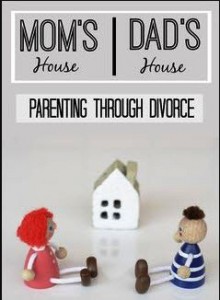
According to the US Census Bureau, couples marrying today have a 50% chance of their marriage ending in divorce. Many of these marriages are between parents and 40% of children will be affected by divorce before reaching adulthood.
When couples with children divorce, their first priority is often the well-being of the children. Sometimes, unhappy couples even choose to stay together because they believe it is the best thing for their children. When a separation or divorce is the best option for the family, effort should be made to protect the most vulnerable members of the family. What can you do to protect your children when you separate from or divorce your partner?
Transition Phase
The process of divorce is stressful for the entire family, but it can be easier if it is handled well. Couples have the option of working together to alter their existing relationship. The inclination during a divorce is to “get rid of your partner” or pay him or her back for any perceived wrongs. Unfortunately, especially for the children, this causes more harm than good in the long run.
During your divorce or separation, do your best to protect your children by working with your soon-to-be-ex to devise an arrangement that is best for everyone. Try to be fair and try not to let your emotional wounds affect your child’s relationship with his or her parent. When possible, avoid a lengthy legal battle.
Custody and Visitation
Protecting your child from harm should be your first priority. If your soon-to-be-former partner has behaved in a manner that put your child at risk, you have every right to protect your child in the future. However, there is a difference between a child being at risk and a child spending time with someone whom you are upset or angry with. Just because your partner hurt you should not mean your child will benefit from estrangement from his or her parent. Do not put your child in the middle of any dispute or discord with your spouse or partner.
Working together to create a custody or visitation arrangement that helps your child feel comfortable and supported is the healthiest type of transition for a child. If he or she is old enough to discuss custody or visitation, take his or her feelings into account when creating an arrangement. Ideally, children will feel just as loved and supported after a separation or divorce as they did when the family was intact.
Finally, speak with your child about responsibility. It is important for children to understand they did nothing to cause the break up of the family.
No matter your personal situation, your children should be protected from the changes in your relationship with your significant other. Working with an experienced family lawyer helps you transition to separation or divorce with as little turmoil as possible. Share your concerns about your child’s safety and well-being with your attorney and he or she can help you determine the steps to take to protect your child.
If you have a legal situation concerning your family and are in need of help, call 631-277-8844 today for a no obligation initial consultation and personal service.
Source:
http://www.smartstepfamilies.com/view/statistics